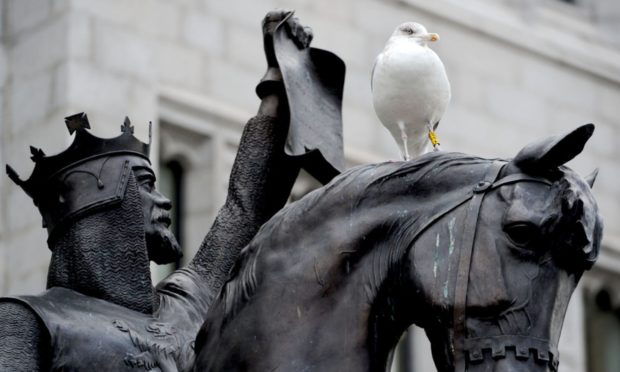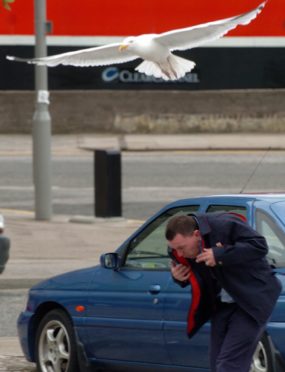Aberdeen’s troublesome gull population left the city centre during lockdown, encouraged by people feeding them in their gardens and at the beach.
Those encouraging the birds into other areas are being warned to stop providing them with food, as it encourages them to congregate and steal more.
Gulls are such an issue in Aberdeen that the city council has been forced to put out advice for residents on how best to deal with them – and put out a plea for the public to stop feeding them for a second time since September.
Numbers of complaints about gulls remains fairly consistent despite stay at home order
Every year, the local authority receives dozens of complaints about the protected birds – in 2020 there were still more than 100, despite the stay at home restrictions in place due to the pandemic.
The 105 people getting in contact last year was only down 34 on 2019 and 42 on the 12 months prior.
Some of the troubles reported include include noise, damage to property, and safety – as people face attacks during nesting season, which starts in March.
An Aberdeen City Council spokeswoman said: “While there hasn’t been people discarding unwanted food and containers in the city centre due to lockdown, other areas of the city have been affected. In addition, people are also deliberately feeding the gulls in their gardens or at the beachfront.
“Our environmental health service has no legislative powers to take action against the gulls and the key to reducing gull numbers lies in reducing the ability to breed and limiting the supply of food.
“In addition, too much human food is not good for them and can lead to them attacking people to steal food. Their natural diet is based on shellfish, other small sea creatures, earth worms, bird’s eggs and insects.
“We’d encourage people to heed the advice given below and play their part particularly not to feed the birds.”
Council tips for deterring gulls in Aberdeen
Environmental health officials have warned people not to feed the birds on streets and gardens or to drop craps for them, as the scavengers are encouraged to stay close to the source in the future.
They recommend disposing of waste food in a “responsible manner”.
Meanwhile, they highlight the use of deterrents such as spikes and nets on chimneys and flat roofs in order to keep gulls away.
Gull troubles usually last through the summer until October as they nest on roofs, though the council has noted increasing numbers choosing to stay in the city, with its constant supply of food, all year round.
As they are legally protected, it is illegal for citizens to capture, injure or destroy a gull or any wild bird, or interfere with its nest or eggs, without a licence.
Pest control companies either oil or pierce eggs to prevent hatching, or manage to remove the nest and eggs – but only of herring gulls, great black backed gulls and lesser black backed gulls.
The local authority also outlined the need for businesses taking precautions to deter gulls, such as nets on their roof, to have a way of releasing the birds without the need to call in firefighters to free them.


